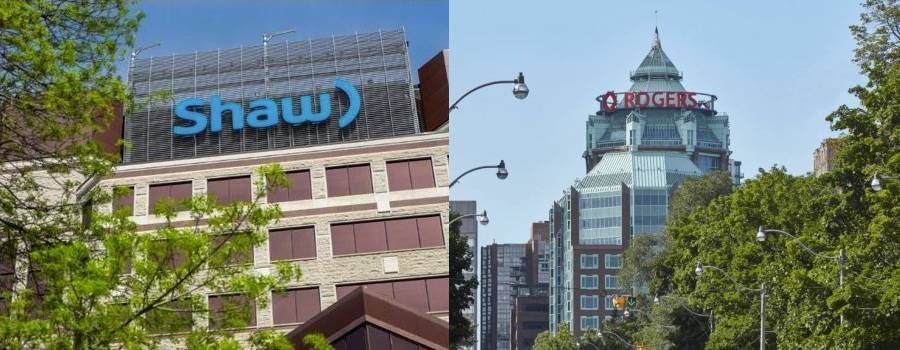Rogers’ takeover of Shaw should not move forward, says parliament report

A 41-page report from the standing committee on industry and technology said the merger will have a negative impact on affordability for consumers and called for a review of the Competition Act.
R ogers Communications’ proposed $26 billion takeover of Shaw has raised red flags over the state of competition in Canada’s telecommunications industry, according to a new report from the House of Commons.
The standing committee on industry and technology published a 41-page report Friday (March 4) after a study of the transaction and the stance of industry stakeholders. The report concluded that the merger should not move forward due to its potential to impact the “affordability and accessibility of telecommunications services” by reduced competition.
The study also noted a potential impact on Canada’s cultural sector, with independent channels such as Super Channel or OUTtv faced with fewer potential buyers. The merger won’t have an impact on the level of content commissioners, however. Shaw sold the last of its stake in Corus Entertainment in 2019 for $545 million.
The committee offered four core recommendations in the event the transaction does go through.
Among them is a call for the federal government to launch an immediate review of the Competition Act to assist the work of the Competition Bureau, after the study showed that the regulator is limited in its resources to thoroughly investigate mergers and acquisitions. It also said that the Department of Innovation, Science and Economic Development (ISED) and the Canadian Radio-television and Telecommunications Commission (CRTC) do not have regulatory directions that “support service affordability and accessibility.”
The Competition Bureau, ISED and the CRTC have not yet issued regulatory approval for the merger. According to Rogers Communications’ financial documents, they must pay Shaw a $1.2 billion break fee if it fails to earn regulatory approval. As well, Shaw has the ability to terminate the deal if it does not close within the first half of 2022.
The committee also recommended that the government ensures affordability takes precedence in its decision, highlighting the importance of maintaining Shaw’s Freedom Mobile as a fourth wireless provider; that all conditions of the merger be enforced in full; and launch a consultation process on Canada’s telecommunications sector to ensure a “level playing field” for network development in cities and rural areas.
Minister of Innovation, Science and Industry François-Philippe Champagne issued a statement ahead of the report’s release, arguing that a wholesale transfer of Shaw’s wireless business to Rogers is “incompatible with our government’s policies for spectrum and mobile service competition, and I will simply not permit it.”
In February the minister announced that the Competition Act would be evaluated to fix any loopholes that allowed “harmful conduct” of companies, while also maintaining its pre-merger notification transaction-size threshold at $93 million for 2022.
Rogers and Shaw issued a joint statement ahead of the release of the report, saying the companies “continue to work constructively with the government and regulators to close this transaction and deliver the benefits of the merger to all Canadians.”
Quebecor Media has also weighed in on the merger, stating that the merger is “contrary to the public interest.”
“As Bell, Rogers and Telus already control 90% of Canada’s wireless market, it is imperative that we create the necessary conditions for real competition in order to give consumers more choice, better prices, better services and more innovation,” said president and CEO Pierre Karl Péladeau in a statement.

 The definitive CDN broadcast and production resource.
The definitive CDN broadcast and production resource.










